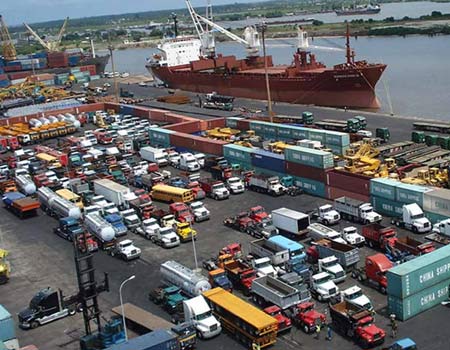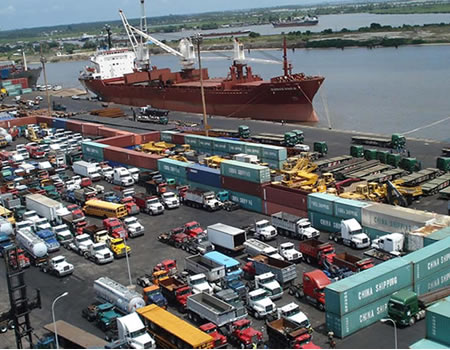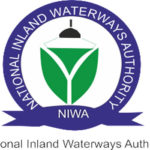The development also increases the cost on shippers as shipping agencies and importers are now forced to pay additional surcharge to ship owners. Although this may also translate into more revenue for the Nigerian Ports Authority (NPA) and terminal operators, it has been exerting huge pressure on the economy through lost time and surcharges.
“Time is of essence in maritime activities. It is more so in port operations where a ship’s voyage has already been programmed for weeks ahead,” Dr Vicky Haastrup, Chairman of the Seaport Terminal Operators Association of Nigeria (STOAN), said in Lagos
“Delay time of ships in the terminal has increased from three days to 30 days. For example, in the ENL Terminal, I have a ship that has berthed and has been waiting to discharge for months because some other ships cannot discharge cargoes because trucks do not have free access to the ports to evacuate already discharged goods.
“The roads are deplorable and the control of the road is a problem. This is a traffic control problem. Everybody goes out in the night, the transporters, the truck drivers, and the oil tanker drivers would park on the bridge and I have been wondering if that bridge is built to withstand such pressure.”
Haastrup who is also the Chief Executive Officer of ENL Consortium Limited, one of the private terminal operators, urged the government to deploy traffic personnel in large numbers to manage the roads leading to Apapa and Tin Can Island ports.
According to her, a minimum of 1,000 trucks come to the Lagos ports and jetties daily to load. “The Federal Government’s right of way needs to be enforced because these trucks just park indiscriminately. Getting to the office is even a challenge. All the inland roads within Apapa are crippled by trucks, and Apapa is sitting on a time bomb waiting to explode. If that happens, it is going to be disastrous,” Haastrup warned.
She called on the Federal Government to pay more attention to the maritime sector by evolving the right policies on challenging issues in the port development.
“These are issues that should have been handled long time ago, including the traffic and the roads. The port is the economic gateway of any country.
“And if attention is paid to it, it will be bigger than oil as a revenue earner. So this is one critical area that government should move in and improve capacity by talking to all the stakeholders to know their problems so we can all solve them together.
“The problems are enormous. There are problems of the roads and problems of having only one mode of transport in evacuating cargoes; so there should be intermodal and multimodal transport facilities from rail, waterways to road to other means. I don’t know why up till now the oil tankers still go to the terminals to load.
“It is a whole lot of problems. Until government does something about it, we will continue to find ourselves in this situation,” the STOAN Chairman explained.







